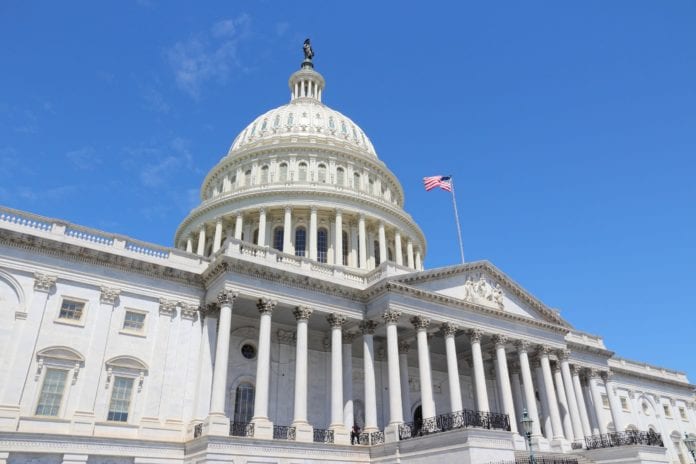‘The FCC deadlock … will remain so for a long time,’ Sohn said in withdrawal letter
President Joe Biden’s nominee to fill the fifth seat on the Federal Communications Commission, Gigi Sohn, has withdrawn from consideration for the seat as a result of the bitter battle over her stalled nomination. Sohn is a longtime consumer advocate and was an advisor to former Federal Communications Commission Chairman Tom Wheeler when net neutrality rules were first imposed by the agency (they were later repealed under the Trump administration and then-Chairman Ajit Pai).
The FCC remains split at 2-2 between Democrats and Republicans, in the third year of the Biden administration. The commission traditionally seats two members of each party, with the chairperson, and therefore the voting majority, coming from the party which controls the White House. While Biden’s choice for the chair, Jessica Rosenworcel, was confirmed, Republicans and industry players fought Sohn’s nomination. Sohn was nominated in October 2021 and her nomination stalled in the Senate over the course of three hearings, the most recent one just weeks ago. Fox Business reported in July of last year that the administration was both considering moving forward with Sohn’s nomination during a lame-duck session after the mid-term elections—which did not happen—as well as vetting additional candidates for the FCC seat. But Biden re-nominated Sohn in January, when the Democrats’ slim majority in the Senate increased to 51.
Sohn’s withdrawal from the nomination process came after Sen. Joe Manchin (D-West Virginia) announced that he would vote against her nomination, saying that her years as a consumer advocate included “partisan activism, inflammatory statements online, and work with far-left groups” and that “the FCC “must remain above … toxic partisanship.”
In a statement provided to The Washington Post, Sohn deplored the “unrelenting, dishonest and cruel attacks” that accompanied her nomination from “legions of cable and media industry lobbyists, their bought-and-paid-for surrogates, and dark money political groups with bottomless pockets.” Sohn, the first openly gay candidate for a seat on the FCC, added: “The FCC deadlock, now over two years long, will remain so for a long time. As someone who has advocated for my entire career for affordable, accessible broadband for every American, it is ironic that the 2-2 FCC will remain sidelined at the most consequential opportunity for broadband in our lifetimes.
“It is a sad day for our country and our democracy when dominant industries, with assistance from unlimited dark money, get to choose their regulators. And with the help of their friends in the Senate, the powerful cable and media companies have done just that,” Sohn wrote.
Evan Greer, director of Fight for the Future, a non-profit advocacy group which supported net neutrality rules and focuses on internet and privacy legislation, said in a statement that “The timing couldn’t be worse” for the withdrawal of a Democratic FCC nominee. “Even if the White House names a new nominee, there may not be enough time for the FCC to move forward with key priorities like restoring net neutrality and broadband privacy rules,” Greer wrote, calling a deadlocked FCC “utterly impotent” and going on to add that “ISPs are under immense pressure to censor legitimate content, including websites with accurate information about abortion care and LGBTQ issues, with state legislatures passing bills demanding ISPs block entire websites.” That includes a bill in Texas that would require ISPs to block access to websites that contain information on how to obtain an abortion or abortion pill.

